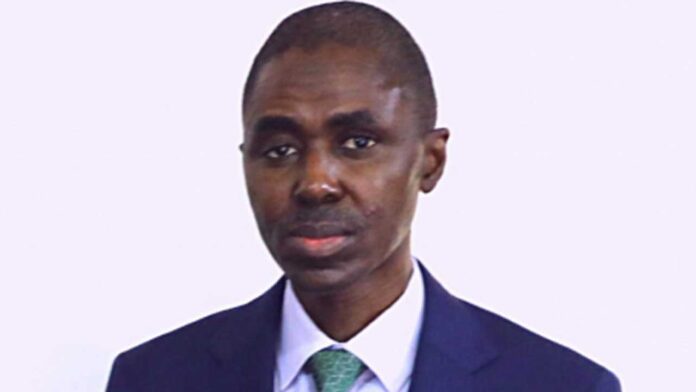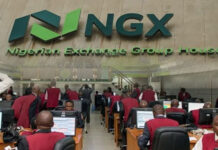The Managing Director/Chief Executive of Nigeria Deposit Insurance Corporation, Bello Hassan, on the sidelines of the recently concluded Finance Correspondents Association of Nigeria workshop organised by NDIC, spoke on reforms within the corporation, including improvements facilitating prompt payment to depositors of failed banks, he also addressed various industry reforms and other pertinent issues. Nume Ekeghe presents excerpts
You have embarked on reforms and may have faced challenges; can you tell us the major challenges?
NDIC primarily is a deposit insurer that is charged with the responsibility of, among others, supervising banks, and guaranteeing deposits in the event of failure, resolution and liquidation. One of the greatest challenges the NDIC is facing is debt recovery. A lot of customers of banks in liquidation that borrowed are not willing to repay those debts. And I want to put it on record and those debts or those loans that were granted were granted out of deposits of people that were collected by the banks. So, it is only when those debtors pay back that the NDIC would now be able to pay the depositors of those failed banks.
So that is one of the greatest challenges that we’re facing. Luckily enough there is a revise in the 2023 NDIC act, a lot of powers have been given to the corporation to expedite this process. So, we are hoping to leverage that to ensure that we recover more so that we can pay those depositors.
What is the value of the debt you are about to recover?
The value of the debt that we are about to recover if you take into account all the banks in liquidation that is the Deposit Money Banks (DMBs), the Microfinance banks, the primary mortgage institution, is a debt that is well beyond N400 billion, and that’s what you’re expecting to recover so that we can pay depositors of those banks’ liquidation. Already will have made a substantial recovery and will have made payment and that is why in the recent past, we have put out adverts that depositors of those failed banks should come forward so that we can verify them to pay what we call liquidation dividend is what we pay over and above the insured amount and we are still doing that. And even for those banks that recently closed, that is those microfinance banks and the primary mortgage institutions whose licenses were revoked in May this year, we have also made substantial payments of the insured amount. In fact, today would have paid more than N1.6 billion to more than 40,000 depositors and we are calling on the depositors of those institutions, especially those that did not have Bank Verification Number (BVN) attached to their bank accounts to come forward so that we can get them verified to pay them the insured amount. Immediately we finish that, we have already commenced the assessment and valuation of the assets of those banks’ liquidation so that we can equally dispose of them to enable us to pay the liquidation dividend, which is over and above the insured amount. We are using this medium to call on the depositors of those banks to come forward to NDIC offices in Abuja, Lagos, and various places across the six geopolitical zones so that we can get the verified in order to pay them the insured amount.
What measures is NDIC putting in place to prevaricate the failure of banks?
No doubt you know there is regulation in place, the central bank is there and that is why we have regulation and supervision. The central bank ensures that banks abide by the rules and regulations, which is the basis of the license they have. So, I believe as we strengthen that process, the risk of failure is going to be reduced to the barest minimum.
If you could ask any request from the government, what would your request be?
Our request to the government is for the government to assist us in making sure that we expedite and bring in all the stakeholders that is the legislature and the judiciary to make sure that anytime we take our cases before the court those cases are given expedited hearing. So that justice can be dispensed. Because in all the cases that we have taken before the courts, what we are trying to prove is that Mr. X has borrowed from the bank and let the courts decide and judge that yes, this person is owing and let him pay. Like I said at the beginning, the loans that were granted but those banks in liquidation were out of depositors’ money not by their capital. So, it is only when they pay that we will be able to pay those depositors. It is only when the debtors repay back that we would be able to pay the depositors. So that is one of our greatest challenges.
There are talks about recapitalisation, some banks may be acquired and some may not be able to meet some requirements and may likely go under. How prepared is the NDIC for this development?
The central bank has already put forward that they are going to embark on recapitalisation. So, it is important for us to just wait and see the clear direction, what that requirement is going to be how much level of recapitalisation will be required. But I knew as we speak, if you look at the performance of the industry, it is very sound. If you look at the look at the key financial soundness indicators of capital adequacy, liquidity, earnings, and quality of asset but certainly, the government is definitely trying to grow our GDP to $1 trillion. You also need bigger banks to be able to play within that space. As the government is implementing the agenda of growing the GDP to beyond $1 trillion, You also need bigger banks to be able to play in that space and I believe it is within that context, that CBN is looking at recapitalising banks. So, we await the CBN, for further details on this recapitalisation process.
Can you speak on the collaboration you have with the EFCC?
We are collaborating with all the law enforcement agencies, especially with the EFCC. We have already established a desk there in order to deepen the investigation, and prosecution of those debtors, as well as the parties responsible for the failure of those institutions and tremendous progress is being made in that regard.
Can you speak on the recent reforms undertaken by NDIC?
We have introduced the Single Customer View (SCV) framework that has enhanced speedy payment of insured sums to depositors of closed banks; we have enhanced collaboration with the bar and the bench, leading to speedy dispensation of justice and more informed judgements on failed banks cases; we have equally put in place policy and framework on Alternative Dispute Resolution for out-of-court settlement, which had enabled us to resolve some hitherto protracted failed bank litigations; we have reviewed the Framework for Differential Premium Assessment System (DPAS) to make it more risk sensitive and account for significant developments that have taken place in the Nigerian banking system since its adoption in 2008; and we have established a special desk at the Economic and Financial Crimes Commission (EFCC), which has energised investigation and prosecution of parties responsible for failure of banks. The Corporation has also reached an advanced stage in the review of the maximum deposit insurance coverage, to account for the impact of macroeconomic developments, since its last review. It is our belief that the new coverage level once approved will go a long way in reinforcing depositors’ confidence on the NDIC’s deposit guarantee scheme. In complementing the consumer protection efforts of the CBN, we have enhanced public awareness on the benefits and limitations of the deposit insurance system and financial literacy, to reduce the rate at which small depositors are being defrauded, thereby enhancing confidence in the banking system; we have invigorated our liquidation activities, and greatly increased debt recovery rate leading to declaration of 100 per cent liquidation dividends to depositors of over 20 deposit money banks in-liquidation; and we have also improved our systems, processes and procedures to promote transparency and accountability in our operations, amongst other humble achievements.
QUOTES
“Luckily enough there is a revise in the 2023 NDIC act, a lot of powers have been given to the corporation to expedite this process. So, we are hoping to leverage that to ensure that we recover more so that we can pay those depositors.”
“No doubt you know there is regulation in place, the central bank is there and that is why we have regulation and supervision. The central bank ensures that banks abide by the rules and regulations, which is the basis of the license they have. So, I believe as we strengthen that process, the risk of failure is going to be reduced to the barest minimum.”





















